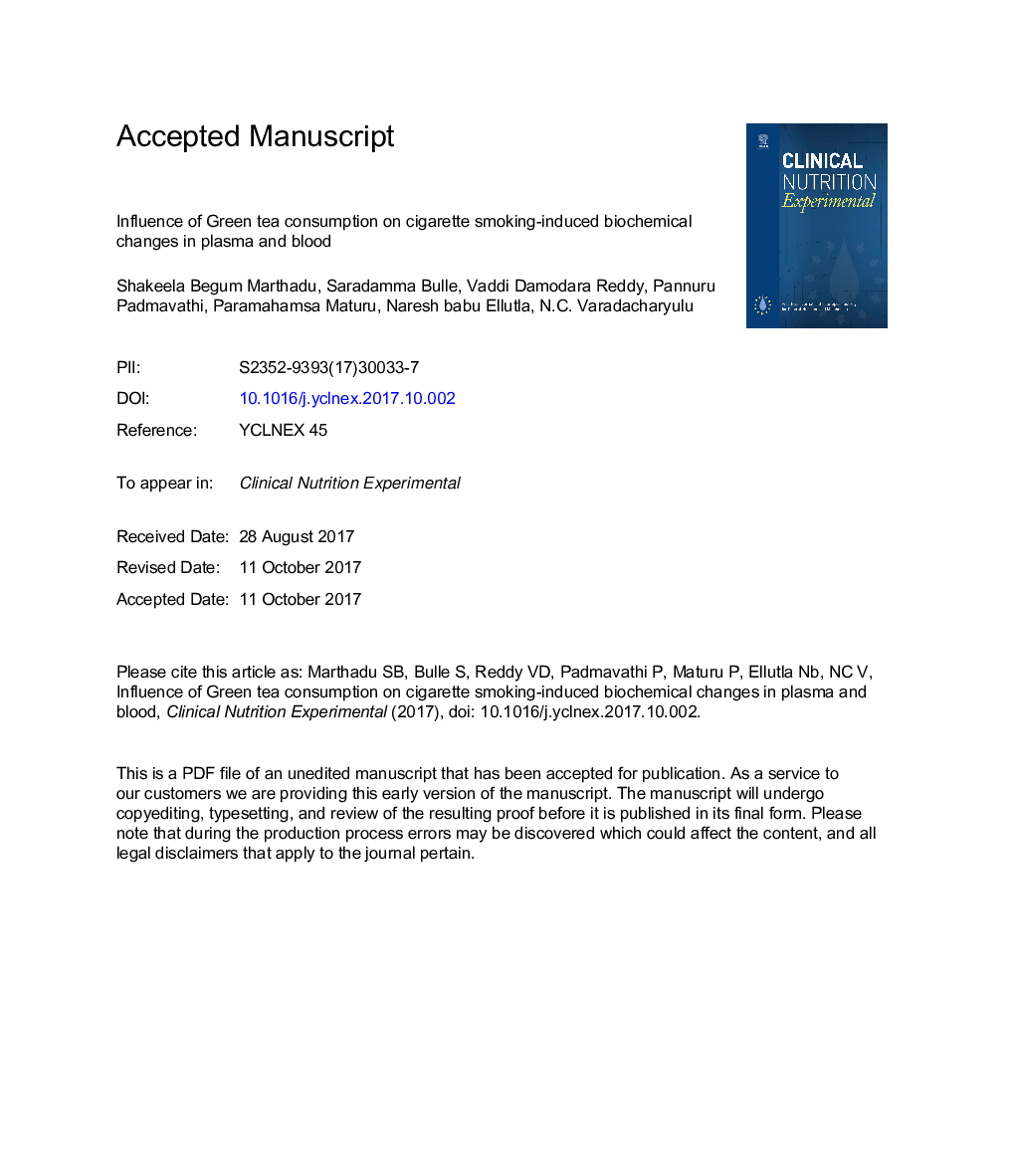| Article ID | Journal | Published Year | Pages | File Type |
|---|---|---|---|---|
| 8588071 | Clinical Nutrition Experimental | 2017 | 29 Pages |
Abstract
Cigarette smoking causes numerous adverse biochemical changes in plasma and blood leading to ill health effects for which therapeutic approaches are sought. The present study investigates the effect of green tea consumption on confirmed cigarette smokers. Blood samples were collected from 120 selected human male volunteers categorized in to four groups viz., controls, smokers, control volunteers consuming green tea with no habit of smoking and smokers consuming green tea were analysed. Results showed that altered plasma glucose, HbA1c, hemoglobin, hematocrit, total cholesterol, lipoprotein patterns (HDL, LDL, VLDL) and lipid peroxidation along with vitamins (vitamin-D, vitamin-B12, vitamin-C) and minerals (iron, total iron binding capacity, calcium, sodium, potassium, phosphorous, chloride) followed by the activities of alanine aminotransferase (ALT), aspartate aminotransferase (AST), gamma glutamyl transferase (γGT) and alkaline phosphatase (ALP). Furthermore, phytochemical analysis of green tea confirmed the presence of phenols, flavonoids and tannins. Antioxidants and free radical scavenging effects of green tea were assessed using 2, 2â²-azino-bis (3-ethylbenzothiazoline-6-sulphonic acid) (ABTS+) and 2, 2-diphenyl-1-picrylhydrazyl (DPPH+). Results of this study clearly demonstrated that the adverse changes observed in the above biochemical parameters in smokers were reversed upon green tea supplementation which can be attributed to the phytoconstituents present in green tea. In conclusion, both in vivo and in vitro studies revealed that phytocompounds present in green tea are able to scavenge free radicals and by there offers protection against smoking induced biochemical alterations.
Related Topics
Health Sciences
Medicine and Dentistry
Endocrinology, Diabetes and Metabolism
Authors
Marthadu Shakeela Begum, Bulle Saradamma, Vaddi Damodara Reddy, Pannuru Padmavathi, Paramahamsa Maturu, Naresh babu Ellutla, Lokesh Thippannagari, N.C. Varadacharyulu,
